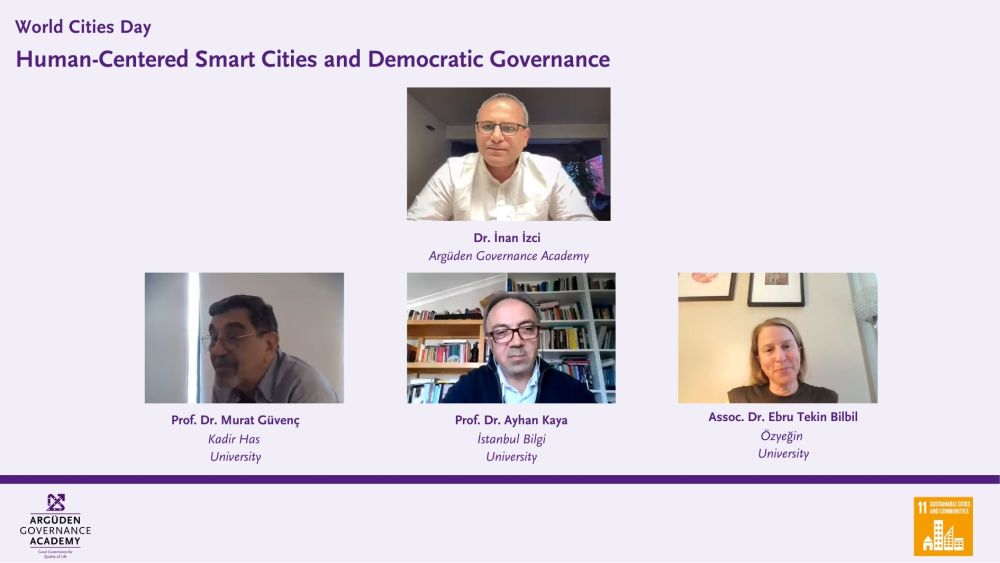SDG 11: World Cities Day
Human-Centered Smart Cities and Democratic Governance
In observance of World Cities Day on October 31, organized annually by UN-Habitat, we convened a webinar titled “Human-Centered Smart Cities and Democratic Governance.”
In observance of World Cities Day on October 31, organized annually by UN-Habitat, we convened a webinar titled “Human-Centered Smart Cities and Democratic Governance.”

Online, 31 October 2025
Moderated by Dr. İnan İzci, the session featured distinguished contributions from Prof. Dr. Murat Güvenç, Prof. Dr. Ayhan Kaya, and Assoc. Prof. Dr. Ebru Tekin Bilbil. The discussion examined the principles of human-centered smart city development, its alignment with democratic governance frameworks, and the implications for forward-looking urban policy.
The webinar emphasized that smart cities are not defined solely by technology or tools. True smart city design places the needs, aspirations, experiences, and well-being of people at the center. Human-centered smart cities are inclusive, participatory, and transparent urban environments where residents have a voice, decision-making is fair and accountable, and social cohesion and the common good are actively fostered.
Assoc. Prof. Dr. Bilbil highlighted that smart cities are shaped within a “network of meanings,” where access to data alone is insufficient. What matters is the representational power of that data and the meaningful inclusion of diverse societal groups in decision-making. She emphasized that the human factor, civic participation, and networks of solidarity are integral to smart city design, which must operate within a democratic, ethical, and inclusive framework, creating open policy spaces that engage all segments of society.
Prof. Dr. Ayhan Kaya noted that while smart cities are often perceived as technology-driven, effective design is impossible without placing people at the center. He stressed the concept of “recognition,” whereby individuals are made visible, represented, and considered by decision-makers. He also highlighted the importance of public spaces, cultural and arts venues, sports facilities, and other “third spaces” as vital arenas for fostering interaction, social cohesion, and inclusion across society.
A key point of consensus among the speakers was that smart cities can only be genuinely “smart” when integrated with the principles of democratic governance. Urban environments where participation is strengthened, citizens act as active agents rather than passive recipients, solidarity mechanisms are reinforced, and representation is broadened are critical for a sustainable future—one in which technology and societal needs converge in harmony.